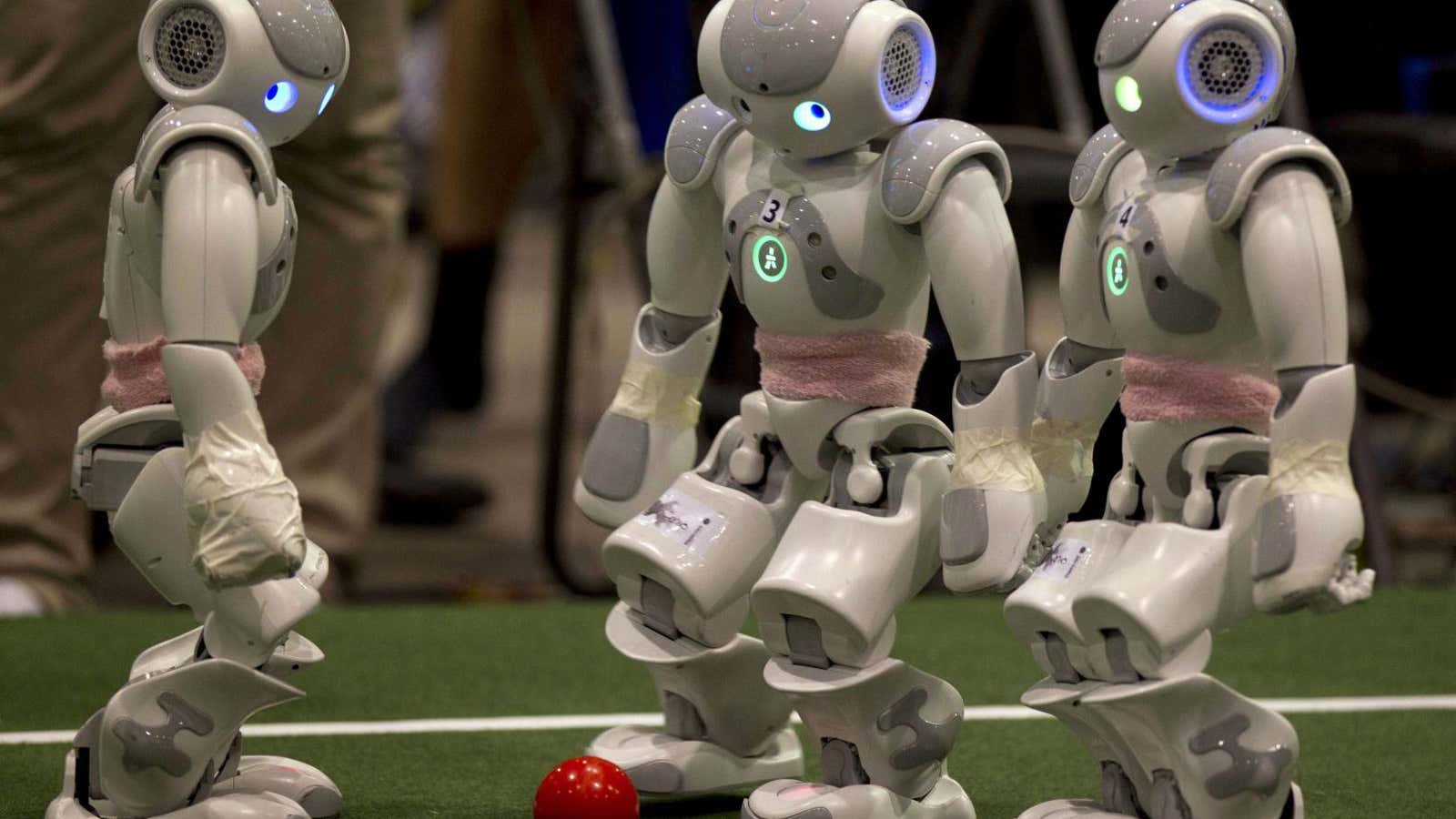Automation is one of the biggest concerns (paywall) of labor economists these days. But US president Donald Trump’s Treasury secretary thinks the threat that robots will replace whole classes of white- and blue-collar jobs is too remote to even think about.
“I’m not worried at all” about job-stealing robots in the nearer term, Steven Mnuchin said today in an interview with Axios; that time is “not even on our radar screen…[it’s] 50-100 more years away.” Rather, he said, tasks to be carried out by robots in our lifetime will be of a non-threatening, mundane character—such as folding towels—that will free up humans for more important work. ”In fact I’m optimistic.”
Mnuchin’s remarks seem important in signaling the administration’s agenda and priorities. Trump has blamed globalization for the loss of American industrial jobs and promised to bring them back by creating incentives for companies to manufacture in the US. In reality, labor economists think automation is already responsible for a lot of the job decline. A study by Ball University in 2015 estimated that if US industry were producing in 2010 at the same level of productivity as it did in 2000, the US would have needed 20.9 million manufacturing workers; instead it had only 12.1 million (pdf, p. 4).
Predictions of the future impact of automation vary widely. The forecasts range from an Oxford University study in 2013 saying that 47% of American jobs are susceptible to automation to a European report that the number is just 9%. Today, a report from PwC predicted that 30% of UK jobs, 35% of German jobs, and 38% of US jobs were at high risk of automation by the 2030s. The Trump administration however suggests this is not worth worrying about.
